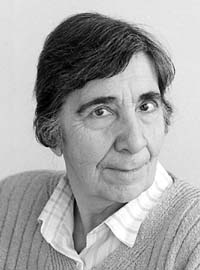Archbishop Feofan’s Recommendations

Ten years ago, part of our society, particularly politicians and TV journalists, found themselves in a situation in which one had to clearly and correctly defend one’s stand, engage in a public debate, and find weak points in the political adversary’s logical defenses. Under the Soviets, one was not allowed a personal point of view, political opponents were dealt with quickly and ruthlessly, and everything really important, including excellent impromptu statements, was read from paper. The art of eloquence has since become obsolete, so that a considerable number of modern personalities often appearing in public prove totally unprepared to deal with large audiences, rallies, or speak in front of TV cameras, let alone handle a serious debate (except when emptying a glass of water in the opponent’s face). Small wonder that public political debates have to be instituted almost at the legislative level. To little avail, I daresay. What can one expect from our founding fathers, considering that they know next to nothing about rhetoric and absolutely nothing about logic? And so, more often than not, they don’t know how to start or end on a given subject, how to get to the main point, or build logical defenses. Theirs is tautology, stammering, incomplete statements, utter contempt of logic, also manifest inability to listen one’s opponent out (even if to try to spot mistakes or discrepancies). As a rule, no dialogue, with every side taking turns (or interrupting the other side) to speak its bit, resulting in a quarrelsome duet.
A remarkably limited vocabulary, lack of erudition and sense of humor result in the emergence of wiretapped recordings of top-level office verbal exchanges with basically the same number of expletives. The above lingual specificities, combined with a lamentable command of the mother tongue, produce an effect that can only be described as unique. Of course, we have anything but antique democracy when the notions politician and orator were almost synonymous. But still...
Considering the topicality of the problem and despite the fact that it is regarded by many as being of little substance, I though it worth quoting from Bishop Theophane (Feofan) Prokopovych’s book On the Laws and Rules of Proper Debate, as part of his major work Logic.
“There are things which must be adhered to without fail in order to hold a good debate and to make discovering the truth easier. Each side must watch its language above all, avoiding everything that can make a statement vague and equivocal. Wishing to be heeded and not wishing to be understood does not stand to reason, does it? It can happen only if [either of the debating parties] wishes to cloud the truth rather than bring it into the open...
“Be careful with your verbiage and tinsel; these things will certainly make others suspect you of craftiness. Truth can be discovered only with the aid of simplicity and sincerity...”
“You must always allow you opponent time to think his answers over. Only foolish and shameless people tend to make rash statements; what they say seems to be born not in their mind but elsewhere...”
“Just as any warrior should know what he must have ready and how to act in time of war, so every participant in a debate should know how to prepare for it or how to act to avoid debate. It is very important to study the topic at length and depth, and the same is true of the opponent’s point of view. It is equally disgraceful not to know the issue you are going to defend or that which you are going to attack. You should think over various formulations which you are likely to use later, lest your dignity become shaky in the course of debate, lest your own weapons let you down. Also, you should consider the opponent’s possible replies to your questions and anticipate ones likely to take you by surprise.
“First and foremost, however, you must carefully study your own theses, checking them for verity and errors. A man of mediocre intellect is more likely to prove verity than the sharpest mind will do falsity. He that defends a faulty allegation can easily, like a blind man, fall into a discrepancy with himself. That was why Quintilian said that a liar must have an exceptionally good memory.
“However, the most important thing in discussing [a problem] is keeping peaceful, serene, and modest. Above all one must keep oneself from shouting. Why, I ask, can you not argue the truth using a calm and polite language? Do you think that you will make your argument more convincing by shouting? Insufferable are those that, being unable to prove their point by reasoning, resort to shouting and swearing. Obviously your reasoning will not lose strength even if you argue your point in a whisper.
“Of course, there are [orators] that refrain from shouting and pressuring, instead mockingly shaking their head or gesturing meaningfully, lowering one eyebrow and raising the other. It is no use. Modesty and friendliness among people in debate should be preserved as though they were an inviolable law, because it is very useful. A sense of proportion in everything is the best thing!”






